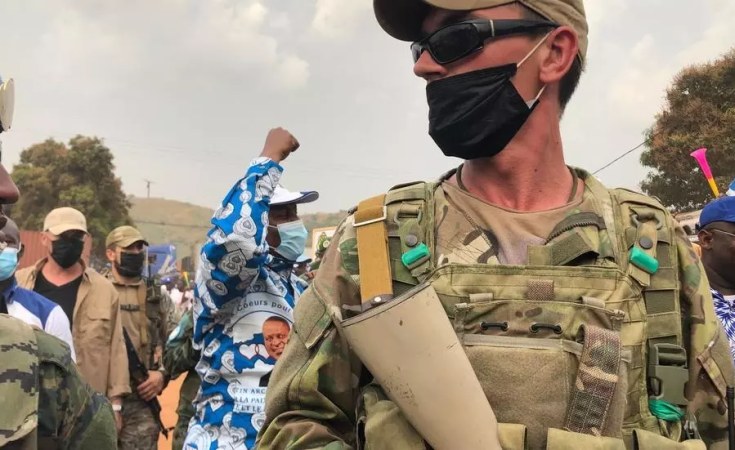France's former president François Hollande has questioned the role of the Russian paramilitary outfit Wagner in the fight against jihadists in Mali - branding the group neo-colonials.
In an interview with RFI and France 24, Hollande reflected on his decision 10 years ago to launch the French military operation Serval in Mali.
The 68-year-old said he sanctioned the intervention - later known as Operation Barkhane - at the behest of the Malian authorities and out of a sense of solidarity.
"Recently, I have seen with sorrow the deterioration of this bond of friendship between Mali and France," Hollande said.
"It has deteriorated because the jihadists have continued to strike and the Malians have said to themselves: 'This will never end despite foreign interventions.'
"Are there fewer attacks and fewer jihadist actions since the French left? No, it's worse," Hollande added.
"Jihadism is now even striking in southern Mali. But Wagner is a private group that lives from the predations it carries out. The neo-colonials are Wagner's men."
Hollande, who took over as French leader from Nicolas Sarkozy in 2012, added: "France only came [to Mali] because it was asked to.
"It left because it was no longer wanted. If the Malians want to have relations with a private group, that's their business, with a state other than France, that's their business."
Hollande has remained active in the Socialist party since falling from power in 2017.
In the wide-ranging interview, he defended Operation Sangaris - launched in the Central African Republic in December 2013.
Three years later, France withdrew its troops against the wishes of President Faustin Archange Touadéra, who was under threat from rebel groups.
He called in the Wagner group.
Hollande said the decision to leave came because of France's military involvement in Mali as well as the Sahel and the Middle East.
"Even if it is not the same troops who are carrying out these operations, there was almost a physical limit," Hollande added.
"I'm not talking about a political limit. We wanted a UN peacekeeping mission, the UNMISCA, to take over and support the elected president of the Central African Republic to ensure reconciliation and stability in the country."
"We can see the diamond mines that interest a certain number of private groups. Again, it is the decision of the Central African authorities ... it's up to them to know what they want to happen, and I think it's quite regrettable that a group like Wagner has set up shop like this."


